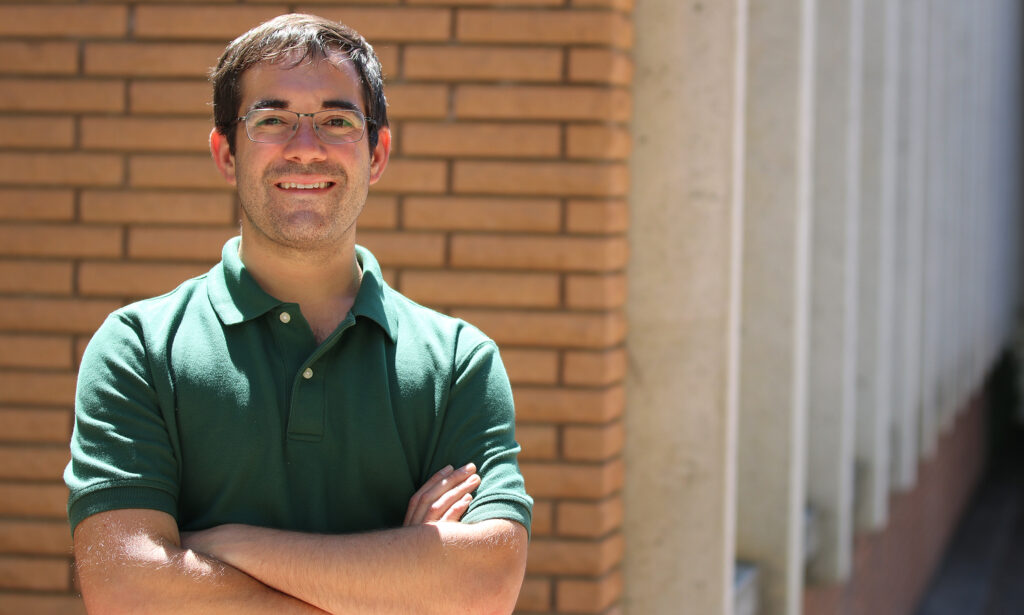Breaking the Silence: A Professor’s Journey to Tackle Mental Health Stigma in Engineering Education

Computer engineering Professor Andrew Danowitz has made it his mission to study mental health in engineering education. He’s sharing his findings with colleagues and his own story with students.
Computer engineering Professor Andrew Danowitz was drawn to mental health research after navigating a program where stress and long hours were often glorified.
As a student, he endured significant impacts on his emotional well-being and witnessed his classmates grappling with similar challenges, all in an environment where the stigma surrounding mental health hindered meaningful conversations.
“Engineering has traditionally had a weed-out culture, leading to the belief that you are supposed to suffer.”
– Andrew Danowitz
Danowitz took the tools, namely in quantitative research, that he honed during those demanding years to begin studying mental health in engineering education – an area few were examining when he joined Cal Poly’s faculty in 2014.
Armed with a grant from the National Science Foundation, Danowitz surveyed engineering students at eight institutions across the United States, uncovering a large gap between students who likely had a mental health condition and those seeking professional help.
Danowitz and his research partner Kacey Beddoes from the Engineering Dean’s Office at San Jose State University found that 16% of students surveyed reported they had received a diagnosis, while 50% had not been diagnosed but tested positive for at least one condition upon screening.
By comparison, 37% of college students had received a mental health diagnosis in their lifetime.
“Together, these results suggest that engineering students are either underserved by campus mental health resources or as suggested by previous research, are simply less likely to use these resources,” he said.
For engineering students who may be less likely to seek help, Danowitz believes targeted outreach by campus mental health and counseling services could result in a higher number accessing resources. His goal is that the College of Engineering will one day have embedded counselors serving that population.
Assessing campus culture, curriculum and instruction decisions is another key to ensure learning equity, he added.
